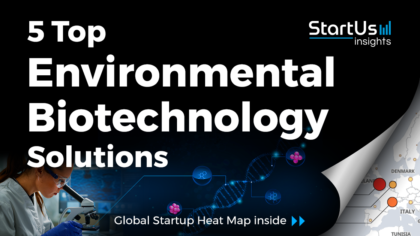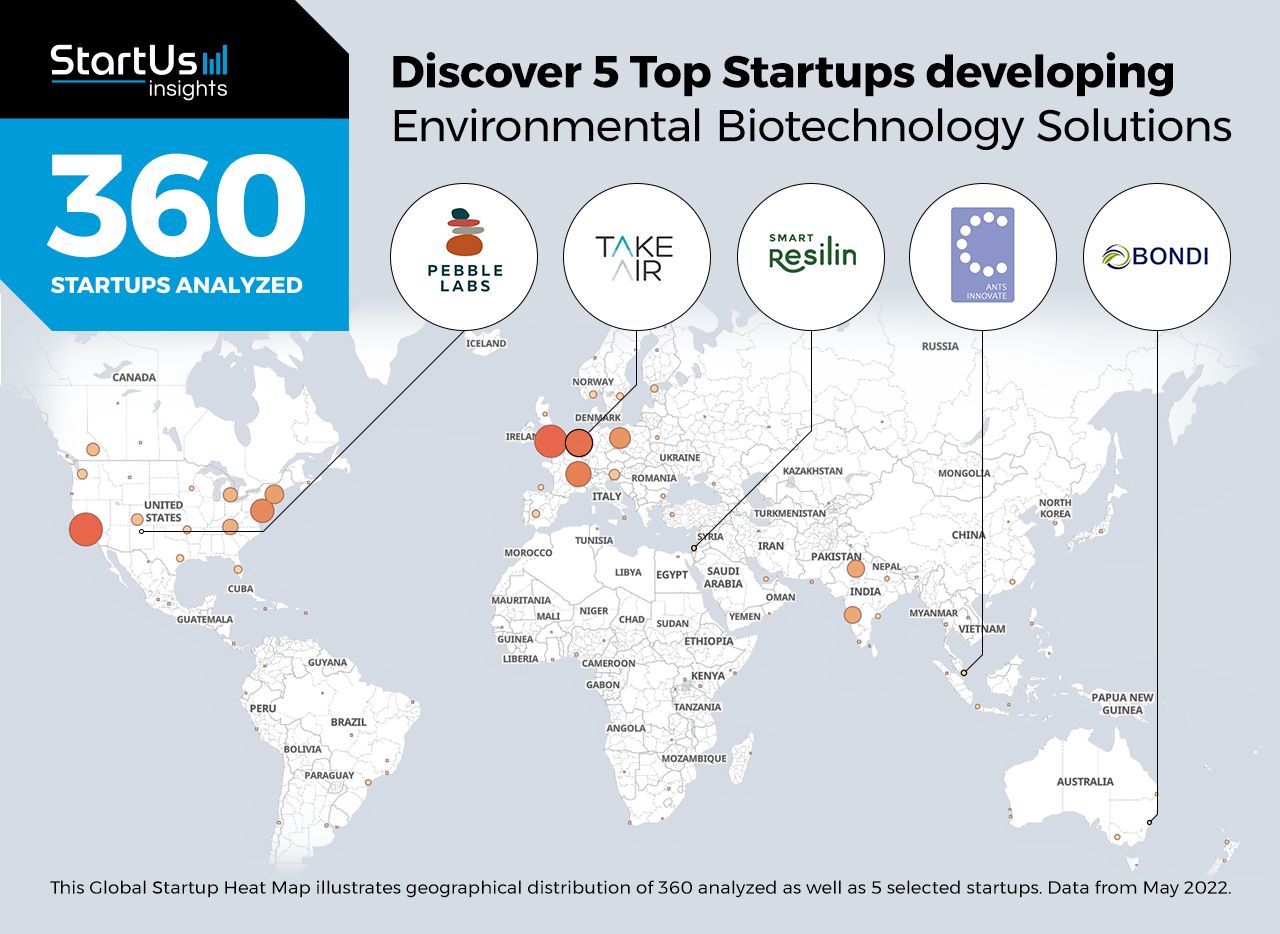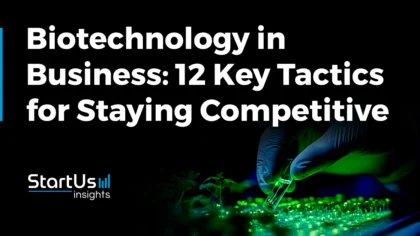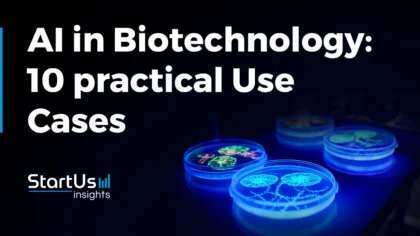Out of 360, the Global Startup Heat Map highlights 5 Top Environmental Biotechnology Solutions
Startups such as the examples highlighted in this report focus on biomanufacturing, genetic engineering, artificial meat, and biopesticides. While all of these technologies play a significant role in advancing BioTech, they only represent the tip of the iceberg. This time, you get to discover five hand-picked environmental biotechnology solutions.
The Global Startup Heat Map below reveals the geographical distribution of 360 exemplary startups & scaleups we analyzed for this research. Further, it highlights five BioTech startups that we hand-picked based on scouting criteria such as founding year, location, funding raised, and more. You get to explore the solutions of these five startups & scaleups in this report. For insights on the other 355 environmental biotechnology solutions, get in touch with us.
Pebble Labs provides RNA-based Pest Control
Founding Year: 2017
Location: New Mexico, US
Funding: USD 24 M
Collaborate with Pebble Labs for Sustainable Agrobiologicals
Pebble Labs is a US-based startup that provides RNA-based pest control. Its product, Directed Biotics, consists of microbes that act as biopesticides. The startup’s process involves the identification and isolation of naturally occurring microbes from the plant or animal of interest. Pebble Labs then engineers the selected microbes to produce high target efficacy-based RNA molecules and add these microbes back to the plant or animal of interest. The ingestion of these molecules by the pests kills them, thereby protecting the plant. Direct Biotics lowers the negative environmental impact due to agricultural and aquaculture industries by reducing the need for toxic chemical pesticides.
Bondi Bio offers Solar Biomanufacturing
Founding Year: 2018
Location: Sydney, Australia
Innovate with Bondi Bio for Cyanobacteria Biofactories
Australian startup Bondi Bio builds a strain engineering platform, Cyanoworks, for solar biomanufacturing. The engineered cyanobacterial strains have higher growth rates and are more amenable to genetic manipulation. They use renewable energy-based LED light sources, carbon dioxide, and diverse wastewater sources for solar biomanufacturing of high-value compounds, ingredients, and chemicals. The startup’s strains enable bioremediation and carbon sequestration for energy, mining, and agriculture industries.
TakeAir enables Algae-based Air Treatment
Founding Year: 2016
Location: Ghent, Belgium
Use TakeAir’s solution for Air Bioremediation
TakeAir is a Belgian startup that enables algae-based air treatment. The startup’s technology, Sea Aeration, provides an anti-viral coating derived from red marine algae. TakeAir coats building ventilation systems with its solution to kill virus pathogens and filter the dust particles in the air. Real estate and building management companies utilize this technology to provide pollution-free indoor space, thereby lower environmental impact.
Ants Innovate produces Cultured Pork
Founding Year: 2020
Location: Singapore
Reach out to Ants Innovate for Animal-free Meat
Singaporean startup Ants Innovate produces cultured pork. The startup’s proprietary process starts with feeding pig muscle cells with natural and healthy nutrients. It then combines these cells with natural biomaterials to form blocks packed in cartridges that are ready to be made into meat cuts. Ants Innovate stack cells based on the choice of meat cut and fats, lowering land and water utilization for pork production.
Smart Resilin engineers an Elastic Protein
Founding Year: 2017
Location: Karmei Yosef, Israel
Partner with Smart Resilin for 3D Printing Biomaterials
Smart Resilin is an Israeli startup that engineers resilin protein. Resilin is an environment-friendly, biodegradable, and non-toxic elastomeric protein produced by insects. Smart Resilin uses genetic engineering to isolate the DNA coding of resilin from the insects and artificially mass manufacture it using E.coli bacteria. The use of resilin instead of plastic reduces the environmental pollution due to microplastics. The sports and automotive industries leverage resilin as a raw material for producing polymer-free elastic products such as athletic footwear and outer car assembly.
Where is this Data from & how to Discover More BioTech Startups?
Staying ahead of the technology curve means strengthening your competitive advantage. That is why we give you data-driven innovation insights into the BioTech industry. The insights of this data-driven analysis are derived from our Big Data & Artificial Intelligence (AI)-powered StartUs Insights Discovery Platform, covering 2 093 000+ startups & scaleups globally. The platform gives you an exhaustive overview of emerging technologies & lets you scout relevant startups within a specific field in just a few clicks. To explore BioTech technologies in more detail, let us look into your areas of interest. For a more general overview, download our free BioTech Innovation Report to save your time and improve strategic decision-making.










